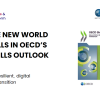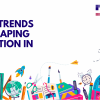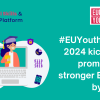The building blocks of a better future for our youngsters: the OECD's Youth Toolkit charts a way forward
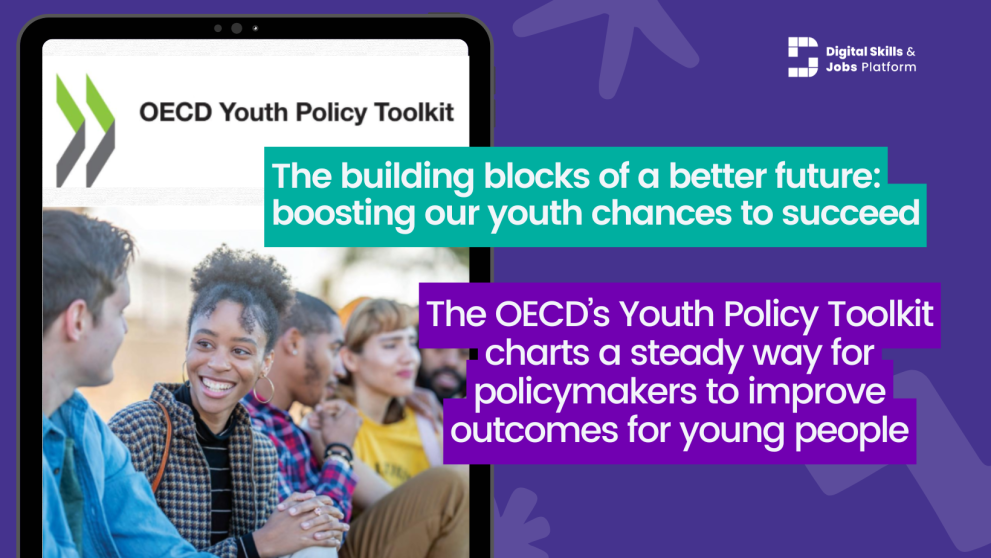
Join us as we dive into the 2024 'Youth Policy Toolkit' - a one-of-its-kind publication by the OECD (Organisation for Economic Cooperation and Development) that collects good practices in employment, social affairs and digital competence in an aim to offer a guide to policymakers in addressing the unique challenges young people face today. The 2024 edition of the Youth Toolkit, which came out in November, is part of the organisation's wider work, directed at up- and re-skilling a future-proof global workforce that does not just withstand, but ultimately capitalises on the challenges of the twin digital and green transition.
In June 2022, all OECD countries adopted the OECD Recommendation on Creating Better Opportunities for Young People - a forward-looking strategic objective that involves governments from all over the world to design a series of policy standards that end up improving young people's outcomes in the world of work and beyond. The Youth Policy Toolkit goes hand in hand with this dedication, charting a way forward for policymakers to implement the recommendation. The report brings up a new need, defined as central to reinforcing democracy, which seems to be fast emerging both in Europe and beyond: the importance of strengthening the trust young people have in governments and public institutions.
‘‘For the times they are a-changin’’: new digital trends
We are no doubt living in a fast-paced world that is being transformed before our very eyes - and even though Bob Dylan's lyrics we sneakily quoted above were written all the way back in the 60s, they ring even truer now. Not only do we witness trends changing every minute, but different gaps (especially ones in the social sphere or education) appear more pronounced. This poses a set of distinct, yet unknown challenges for policymakers, who now have to draw plans to address inequality silos and design policies that help to upskill everyone, and in a way that is not detrimental to economic growth. Ensuring no European is left behind is at the forefront of the Digital Education Action Plan and also lies at the core of the EU Digital Decade targets of reaching 20 million IT experts and ensuring 80% of Europeans possess at least basic level of digital literacy.
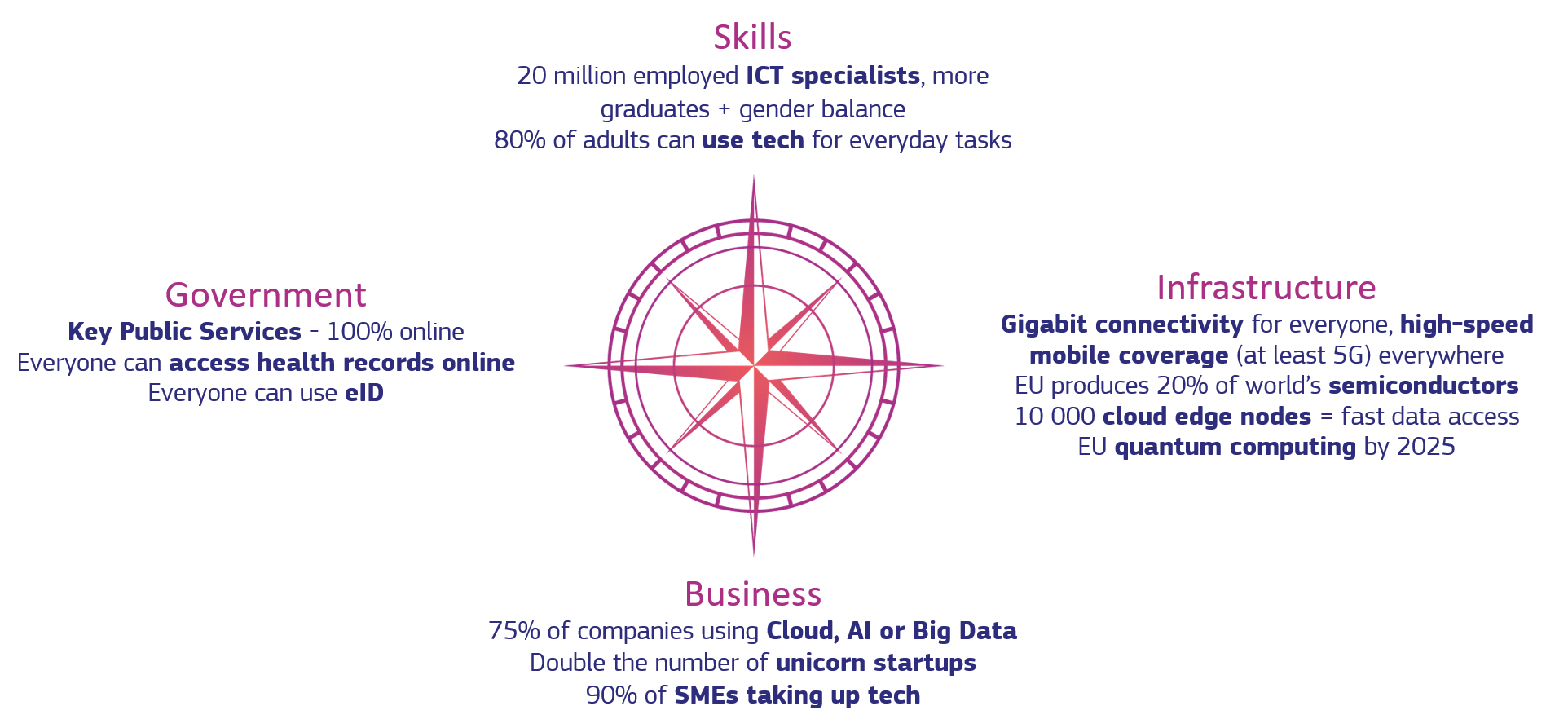
‘‘Forever young’’ ? Challenges impacting young people
At the same time, young people face their own unique set of challenges of diverse nature: be it demographic, environmental, or economic one. And indeed, the European continent is aging fast: estimates by Eurostat project a 6% decrease in the EU-27 population between 2022 and 2100, equivalent to a loss of 27.3 million people. The World Bank also notes that while environmental disasters may cause devastation for everyone, they disproportionately impact Europe’s most vulnerable communities, increasing poverty and inequality. Stability is also key here: young people are also often the first ones to lose their jobs when large-scale, major crisis events (think COVID-19) hit, as they usually hold temporary contracts or are not in stable, full-time employment due to study or training.
Allowing young people to thrive in the labour market is a must and can act as a temporary relief in difficult, crisis situations - but only if they are equipped with the right skills to breeze through the challenges they encounter. This means the transition between education and the world of work has to be smoother, with fewer barriers to employment and graduates with practical, hands-on skillsets. What is more, young people see a gap between what they are taught in school and what employers actually want. This mismatch can lead to a loss of job opportunities, lower wages, and negatively impacts one's motivation to make a positive impact in society. The figure below shows the current state of play with NEET rates for 15-29 year-olds, i.e. young people not in employment, education or training for 2023.
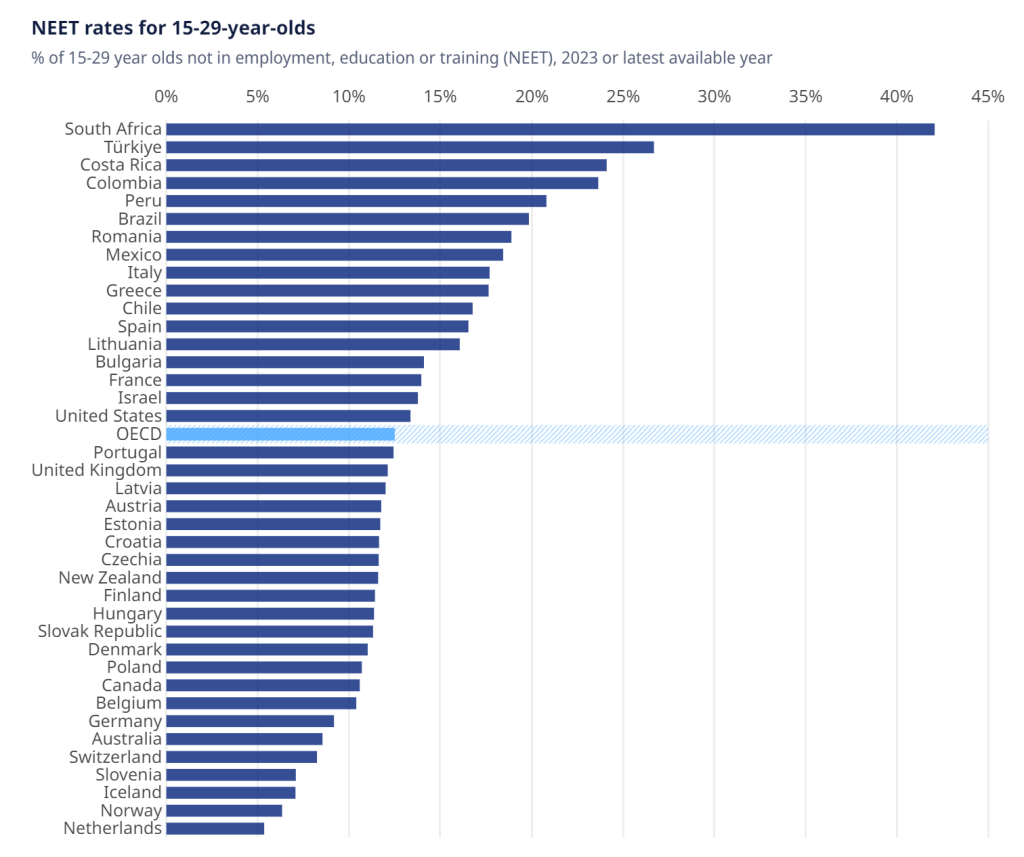
'Not one person left behind': an EU-wide ambition to involve everyone in the digital transition takes shape
A range of strategic objectives directed at fostering lifelong learning strategies for the entire population, improving the quality of education and training throughout Europe, and boosting advanced skills needed by experts in emerging and new technologies, have been deployed throughout the EU Member States as a way to solidify a capable and future-proof EU workforce.
The Italian Yes I Start Up initiative succeeded in launching a variety of activities (training, mentorship and support services) aimed at promoting self-employment and entrepreneurial skills amongst NEETs up to the age of 29. From 2018 to 2020, 1.700 NEETs completed some of the 350 training sessions offered, with women accounting for almost half of participants. The same initiative also succeeding in funding close to 600 SMEs from all around Italy to open new vacancies and create over 2.500 jobs. In Austria, national and municipal authorities ran a successful decade-long campaign via the Vienna Training Guarantee or Wiener Ausbildungsgarantie set up back in 2010 dedicated to making quality jobs available and accessible to all, regardless of their background. Since 1999, the Slovenian Institute for Adult Education (SIAE) has been running the 'Project Learning for Young Adults' (Projektno učenje mlajših odraslih), or PUM-O, with the goal of getting to young Slovenians between the ages of 15-26 that have either dropped out of school, or are at risk of doing so. In 2016, the program was upgraded due to its sound impact, after 1.376 young people from all over Slovenia took part.
Eroding trust in democracy: capacity-building
Another aspect worth noting is the increasing extent to which young people's trust in the government and public institutions is eroding. In a previous OECD poll, just over 35% of people from 18 to 29 in 2021 expressed trust in their respective governments, compared to close to 50% for those aged 50 and over.
Some EU Member States address this issue head-on. Denmark, Portugal and Sweden all have civic education embedded within mandatory curricula. This is known under different names: “School Election” in Denmark (Skolevalg), 'Skoval' in Sweden and 'Youth Parliament' in Portugal, but has 1 goal: to ensure the next generation is equipped with the right skills to be informed, responsible, and accountable citizens. Equally, research shows civic education can support young people's participation and contribution to the democratic process. In Switzerland, the "Easyvote" web platform presents political content in a clear and neutral format, making it more accessible for young people.
In Sweden, regional and local municipalities have joined forces to launch the LUPP (Local Follow-up of Youth Policy) survey tool in an effort to strengthen evidence-based policymaking and ensure the diverse needs of young people are heard and taken into account in the design of future initiatives. Since 2003, the tool has managed to reach a total of 175 municipalities (out of 290), according to data from 2019. Over 150 municipalities have implemented the tool more than once: to take note of needs evolving over time, or changing attitudes and dispositions.
'It's the environment, dummy!' Youngsters' attitudes to green skills
If we look at skills for the green (and digital) transition, youngsters are lagging behind - a trend that can have detrimental consequences in the face of changing weather conditions and increased mass disasters due to climate change. Just one-third of 15 year olds across the OECD surveyed countries reported having taken concrete actions to support green, sustainable economies in the last year. According to the OECD, even in countries, where climate change is necessitating this, i.e. many climate disasters are taking place - the share of environmentally active students is below 50%.
This is an issue due to several reasons, but potentially the biggest one being that there is no beating around the bush anymore: climate change-related disasters are here to stay, and will pose more challenges for future generations. This is also where new and existing digital technologies like AI, machine learning and high-performance computing can offer some of the highest potential returns for the economy and society - but only if individuals are equipped with the right skillsets. The OECD Skills Outlook 2023, another annual publication that tracks the state-of-play with skills and jobs including existing supply and demand, equally suggests that helping individuals develop a diverse range of skills and empowering them to apply these skills, is a vital step to manage the transition effectively and mitigate the impact of potential harmful events like environmental disasters, massive cyber attacks, etc). The EU Innovation Agenda also reflects this shift, posing that the digital transition should be regarded together with the green one: a twin transformation that Europe can spearhead only if equipped with the right skills to do so.
'There is a light that never goes out': good practices in youth policy as a way to safeguard a brighter future
If the goal is to equip people all over the world with digital skills to improve chances for all but we are still in the dark on how exactly to go about it, then the OECD Youth Toolkit shines a flashlight up front. OECD's toolkit contains a range of good practice examples from 38 countries – not limited to digital literacy, but also covering fields like education, employment and social inclusion, health, or public governance and security. The examples reflect the diverse attitudes belonging to young people, which are dependant on personal and national circumstances, socio-economic background, gender, race or ethnicity, or country of origin.
Dive into the OECD Youth Policy Toolkit - download it here!
**********
This is an adaptation of an original work by the OECD. The opinions expressed and arguments employed in this adaptation should not be reported as representing the official views of the OECD or of its Member countries.


